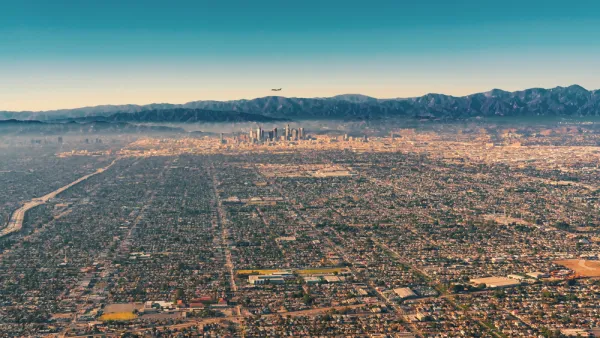Cities produce more CO2 per acre, but much less per person than other types of living, according to a new study by The Center for Neighborhood Technology.
""Cities are more location-efficient, meaning key destinations are closer to where people live and work," said CNT President Scott Bernstein. "They require less time, money, fuel and greenhouse gas emissions for residents to meet their everyday travel needs. People can walk, bike, car-share, take public transit."
Looking at particular Chicago neighborhoods, the study found that Pilsen, the Irving Park/Sheridan area and South Shore had some of the lowest household emission counts -- 3 or less metric tons of carbon dioxide per household per year. Beverly scored on the high side for city neighborhoods, at 7.2 tons."
FULL STORY: City dwellers leave small carbon footprint

Analysis: Cybertruck Fatality Rate Far Exceeds That of Ford Pinto
The Tesla Cybertruck was recalled seven times last year.

National Parks Layoffs Will Cause Communities to Lose Billions
Thousands of essential park workers were laid off this week, just before the busy spring break season.

Retro-silient?: America’s First “Eco-burb,” The Woodlands Turns 50
A master-planned community north of Houston offers lessons on green infrastructure and resilient design, but falls short of its founder’s lofty affordability and walkability goals.

Test News Post 1
This is a summary

Analysis: Cybertruck Fatality Rate Far Exceeds That of Ford Pinto
The Tesla Cybertruck was recalled seven times last year.

Test News Headline 46
Test for the image on the front page.
Urban Design for Planners 1: Software Tools
This six-course series explores essential urban design concepts using open source software and equips planners with the tools they need to participate fully in the urban design process.
Planning for Universal Design
Learn the tools for implementing Universal Design in planning regulations.
EMC Planning Group, Inc.
Planetizen
Planetizen
Mpact (formerly Rail~Volution)
Great Falls Development Authority, Inc.
HUDs Office of Policy Development and Research
NYU Wagner Graduate School of Public Service




























